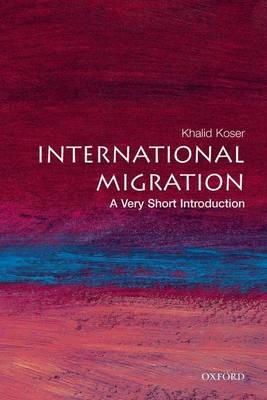Very Short Introductions
2 total works
Using interviews with migrants from around the world, the author presents the human side of topics such as asylum and refugees, human trafficking, migrant smuggling, development, and the international labour force. His goal throughout is to allow readers to see beyond the negative spin usually given the subject by the media and politicians, and come to their own conclusions on the international migration situation today. ABOUT THE SERIES: The Very Short Introductions series from Oxford University Press contains hundreds of titles in almost every subject area. These pocket-sized books are the perfect way to get ahead in a new subject quickly. Our expert authors combine facts, analysis, perspective, new ideas, and enthusiasm to make interesting and challenging topics highly readable.
International migration has always mattered, but today it matters more than ever before. The increasing importance of migration derives from its growing scale and its widening global reach, but also from a number of new dynamics. These include the feminization of migration, the growth of so-called irregular migration, and inextricable links between migration and globalization in terms of economic growth, development, and security. Most recently the global financial crisis is impacting significantly on the dynamics of international migration. Climate change, moreover, is certain to raise migration still higher on national policy agendas, and to challenge existing legal and normative frameworks, national, international and institutional responses.
In addressing the changing opportunities and challenges of international migration, and national and international responses, this volume has four hallmarks:
It covers the most topical issues, including the impact on international migration of the global financial crisis; migrant smuggling and human trafficking; challenges of migrant integration; the links between migration and the demographic crisis; and "mixed flows"
It considers current efforts to improve the governance of international migration, at the national, international and institutional levels
It adopts a global perspective, including substantial consideration of "South-South" migration and the growing significance of Chinese migrations
It draws on the author's extensive original empirical research with migrants and refugees around the world, and policy experience in the USA, Europe and Australia
.

